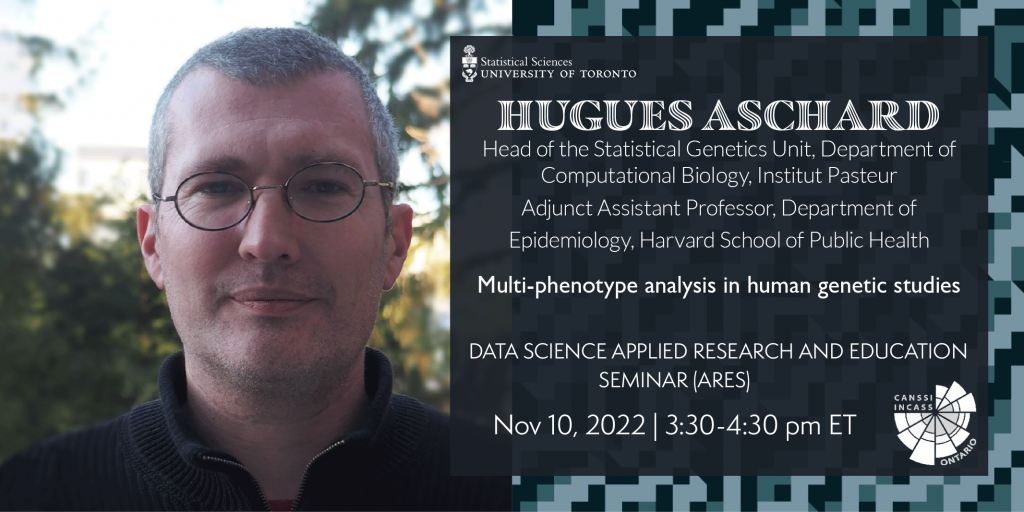- Location
- Virtual
- Series/Type
- Community Outreach Event, DLSPH Event
- Dates
- January 10, 2022 from 3:30pm to 4:30pm
Links
Free Event | Registration Required
Talk Title: Multi-phenotype analysis in human genetic studies
Abstract:
During the past 15 years genome-wide association studies (GWAS) have been conducted on thousands of human phenotypes, providing an overview of the genetic architecture of complex human diseases. Above all, GWAS demonstrated the highly polygenic nature of almost all quantitative traits and common diseases. High polygenicity has severely hampered our ability to fulfil the promises of modern human genetics, and slowed down the translation of this wealth of data into public health. To circumvent this limitation, human geneticists have deployed a range of innovative approaches to better understand the distribution of genetic effects across the genome and their link to functional annotations, to estimate phenotypes heritability, and to improve genetic risk prediction. More recently, multi-phenotypes analyses raised as a key topic to move forward. Here I will present three approaches that illustrate the potential of multi-phenotypes analysis. The first one is about leveraging multivariate data to increase statistical power of univariate GWAS. The second one focuses on methods to decipher cross-phenotype genetic architecture, and how it can help breaking out polygenic effect into distinct biological pathways. Finally, the third one addresses the co-regulation/correlation of intertwined phenotypes, a scenario commonly encountered when analyzing omics’ data.
Speaker Profile:
I’m the head of the Statistical Genetics Unit in the Department of Computational Biology at the Institut Pasteur, Paris, France. Our research focuses on the development and the application of novel methods for the integration of biological, clinical and environmental data to understand the genetic architecture of multifactorial diseases in human. It combines in-depth theoretical work related to association screening, risk prediction and causal inference, and discovery-oriented studies that aim at answering specific biological questions. The methods we develop focuses in particular on multivariate analysis, that is, the combined analysis of multiple outcomes and multiple predictors, and approaches allowing for interaction effects between risk factors.
